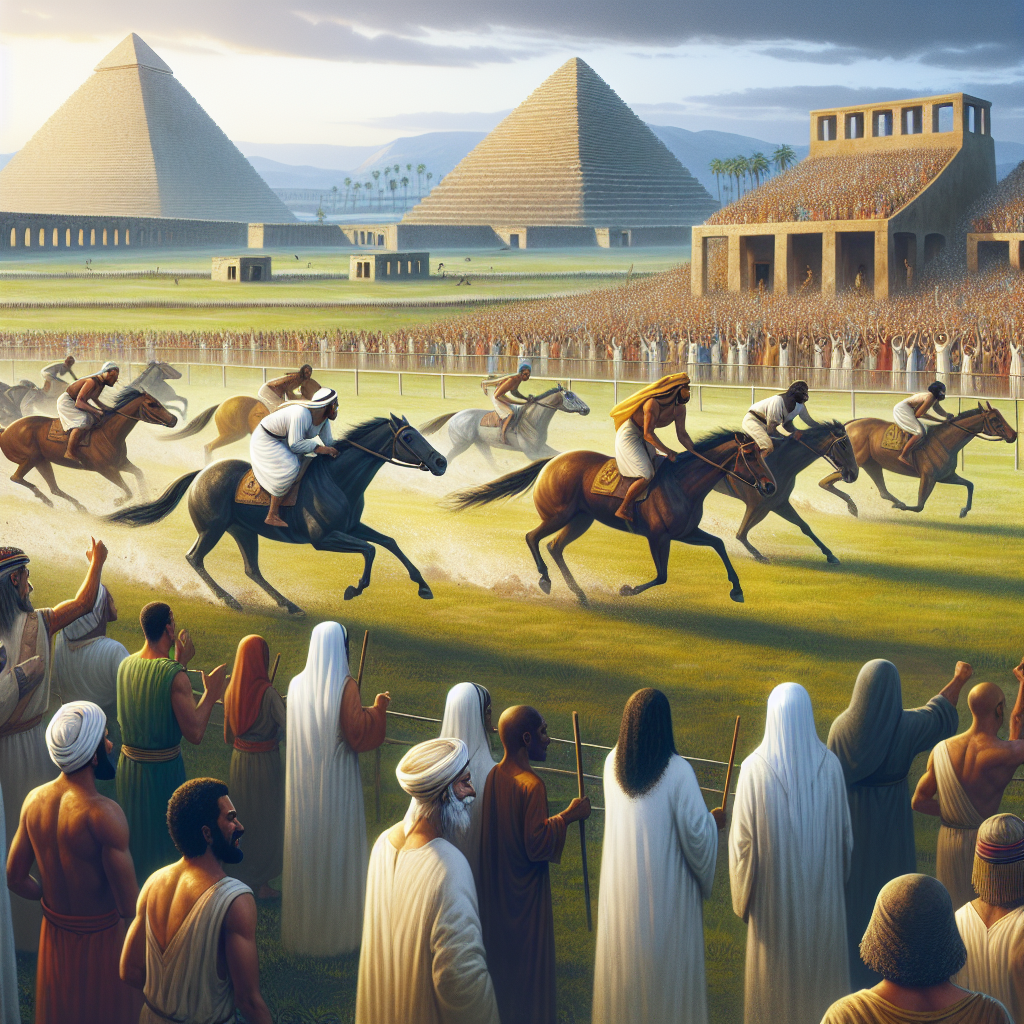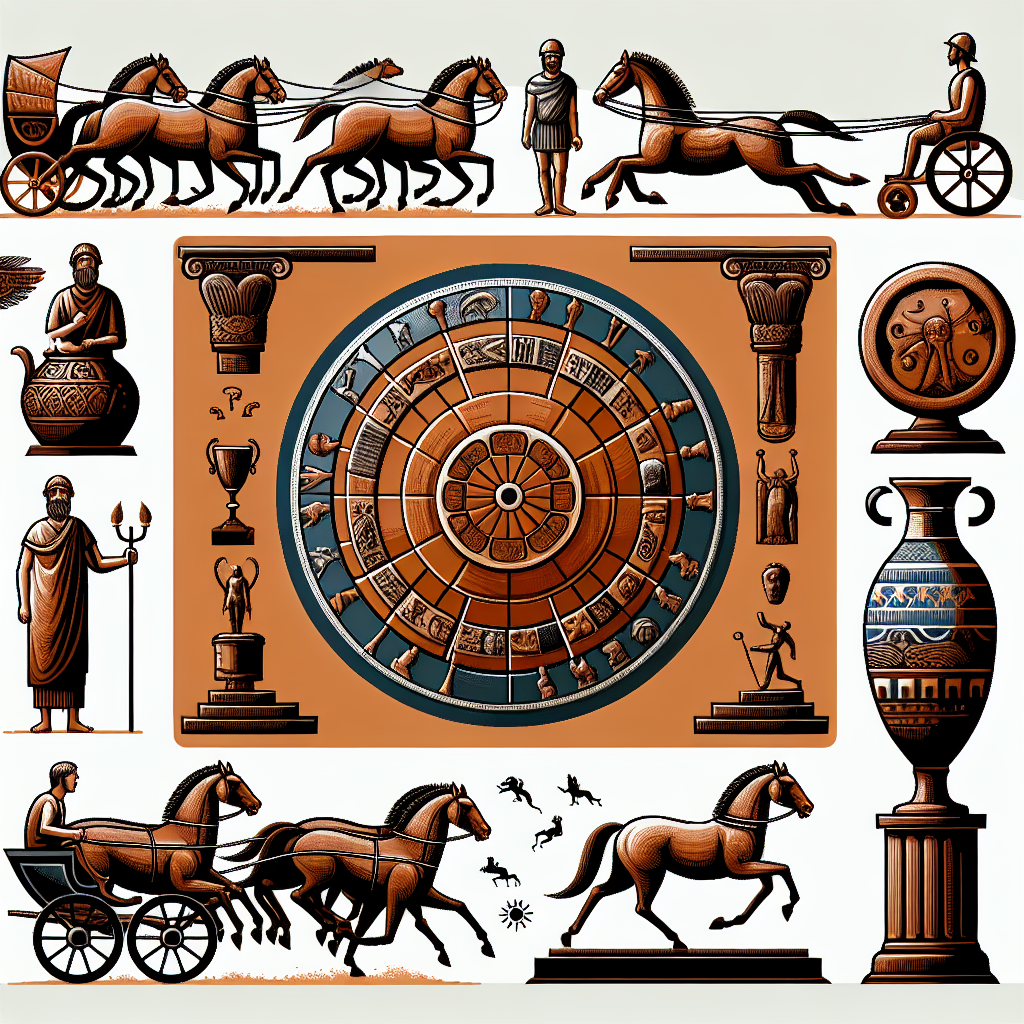The Origins of Horse Racing
Imagine a time when horse racing was more than just a thrilling sport or an opportunity for gambling. Picture a time when it was deeply ingrained in the fabric of society, steeped in history and tradition. As you step into the world of horse racing, it becomes evident that this beloved pastime has a fascinating origin story, one that dates back centuries. With every hoofbeat echoing through time, the history of horse racing unfolds, taking us on a captivating journey through various civilizations and cultures. So, let’s saddle up and embark on a voyage to explore the origins of horse racing, a tale that will transport you to an era where speed, skill, and the noble horse captured the hearts of people worldwide.

1. Ancient Origins
Horse racing has a long and storied history that can be traced back to ancient civilizations. From the chariot races of the Mesopotamians to the mounted races of the Greeks and Romans, the sport has captivated audiences for centuries.
1.1 Horse Racing in Ancient Civilizations
The history of horse racing can be traced back as far as 4,500 BCE in Central Asia. Nomadic tribesmen, skilled in horsemanship, would compete against each other in races that showcased the speed and agility of their horses. These races served a practical purpose, as they allowed tribes to determine the best breeding stock for their herds.
1.2 Ancient Greece and the Olympic Games
Horse racing played a crucial role in ancient Greek culture, particularly during the Olympic Games. The Greeks held various equestrian events, including chariot races and mounted races called “keles.” These races were not only a test of skill and speed but also demonstrated the close bond between horse and rider.
1.3 Roman Influence on Horse Racing
The Romans, known for their love of sport and competition, further developed and popularized horse racing. They introduced four-horse chariot races, known as “quadrigae,” which became a crowd favorite. The Romans also built elaborate hippodromes and circuses, dedicated spaces designed specifically for horse races and other spectacles.
2. Middle Ages and Renaissance
The Middle Ages marked a significant shift in horse racing, as the sport became more formalized and structured. Equestrian sports began to emerge throughout Europe, and tournaments played a central role in showcasing the skills of knights and their horses.
2.1 The Emergence of Equestrian Sports in Europe
During the Middle Ages, equestrian sports gained popularity as a form of entertainment and a display of chivalry. Europe was divided into various feudal kingdoms, and each region developed its own unique horse racing traditions. Races such as “palfreys” and “hobblers” were common, with riders competing on horseback over rough terrains.
2.2 Tournaments and Jousting
Tournaments became a spectacle of medieval horse racing, combining military skills, athleticism, and pageantry. Knights would compete in jousting tournaments, charging at each other on horseback with lances in hand. These events showcased the prowess of both horse and rider and often attracted large crowds.
2.3 Development of Betting and Wagers
As horse racing gained popularity, so did the practice of betting and wagering on the outcome of races. Spectators would place bets on their favored horses and riders, adding an element of excitement and competition to the sport. Wagers evolved from simple honor bets to more formalized systems, with specialized bookmakers and odds.

3. Modern Horse Racing
The modern era of horse racing began with the establishment of organized races and the introduction of regulations and standards for the sport. This period saw the birth of influential organizations, the development of dedicated racetracks, and the evolution of horse racing competitions.
3.1 Birth of Organized Horse Racing
In the 17th century, horse racing started to take a more organized form with the introduction of match races, where two horses would compete against each other. These races were often arranged by wealthy individuals and provided a platform for showcasing the abilities of their horses.
3.2 Establishment of the Jockey Club
The Jockey Club, founded in 1750 in England, played a pivotal role in shaping modern horse racing. The organization was responsible for establishing rules and standards for the sport, ensuring fair competitions and maintaining the integrity of the races. The Jockey Club also had a hand in regulating breeding and registration of racehorses.
3.3 Evolution of Horse Racing Tracks and Competitions
Dedicated racetracks began to emerge in the 18th and 19th centuries, providing purpose-built venues for horse racing events. These tracks featured various distances, surfaces, and obstacles, adding complexity to the races. The creation of prestigious competitions, such as the Epsom Derby and Kentucky Derby, further elevated the status of horse racing.
4. Horse Racing in America
Horse racing in America has a rich and vibrant history, with its roots dating back to the colonial era. As European settlers arrived in North America, they brought with them their love for horse racing, which quickly took hold and became a beloved pastime.
4.1 Early Colonial Horse Racing
The early days of horse racing in America were intertwined with the growth and development of the colonies. The first recorded race took place in New York in 1665, where horses from different parts of the colony competed. Horse racing soon spread to other regions, with Virginia and Maryland emerging as hotspots for the sport.
4.2 Founding of the American Jockey Club
The American Jockey Club, founded in 1894, was instrumental in organizing and regulating horse racing in the United States. The club established rules, conducted inspections, and oversaw races to ensure fair competition. Its influence extended beyond the track, as it also played a role in shaping breeding standards and promoting the welfare of racehorses.
4.3 Growth and Popularity in the United States
Horse racing gained widespread popularity in the United States during the 19th and 20th centuries. The construction of dedicated racetracks, such as Churchill Downs and Saratoga Race Course, provided venues for thrilling races and attracted large crowds. Iconic races like the Triple Crown, consisting of the Kentucky Derby, Preakness Stakes, and Belmont Stakes, became legendary events in American sports.
5. Horse Racing in the 20th and 21st Centuries
The 20th and 21st centuries brought about numerous advancements and changes in horse racing, from technological innovations to the rise of legendary horses and jockeys. The sport continued to captivate audiences around the world.
5.1 Technological Advancements and the Introduction of Doping Regulations
As technology advanced, horse racing embraced various innovations to enhance the sport. Electronic timing systems, photo finishes, and starting gates revolutionized the way races were conducted. Additionally, doping regulations were implemented to ensure fair competition and prevent the use of performance-enhancing substances.
5.2 Famous Horses and Jockeys
Throughout horse racing’s history, there have been remarkable horses and jockeys who have left an indelible mark on the sport. Secretariat, Man o’ War, and Seabiscuit are just a few of the legendary horses that captured the imagination of fans worldwide. Jockeys like Eddie Arcaro, Willie Shoemaker, and Bill Shoemaker became household names, with their skill and achievements celebrated.
5.3 Horse Racing Around the World
Horse racing is a global phenomenon, with races taking place in various countries across the globe. From the prestigious Royal Ascot in England to the Dubai World Cup in the United Arab Emirates, each region has its own unique racing traditions and events. The sport continues to unite people from different cultures and backgrounds, showcasing the enduring allure of horse racing.
In conclusion, the history of horse racing is rich and diverse, spanning centuries and continents. From its humble beginnings in ancient civilizations to its modern incarnation as a global sport, horse racing has evolved and captivated audiences throughout the ages. Its vibrant history serves as a testament to the enduring spirit of competition and the enduring bond between horse and rider. So next time you watch a horse race, take a moment to appreciate the long and storied history that has brought us to this thrilling moment.

